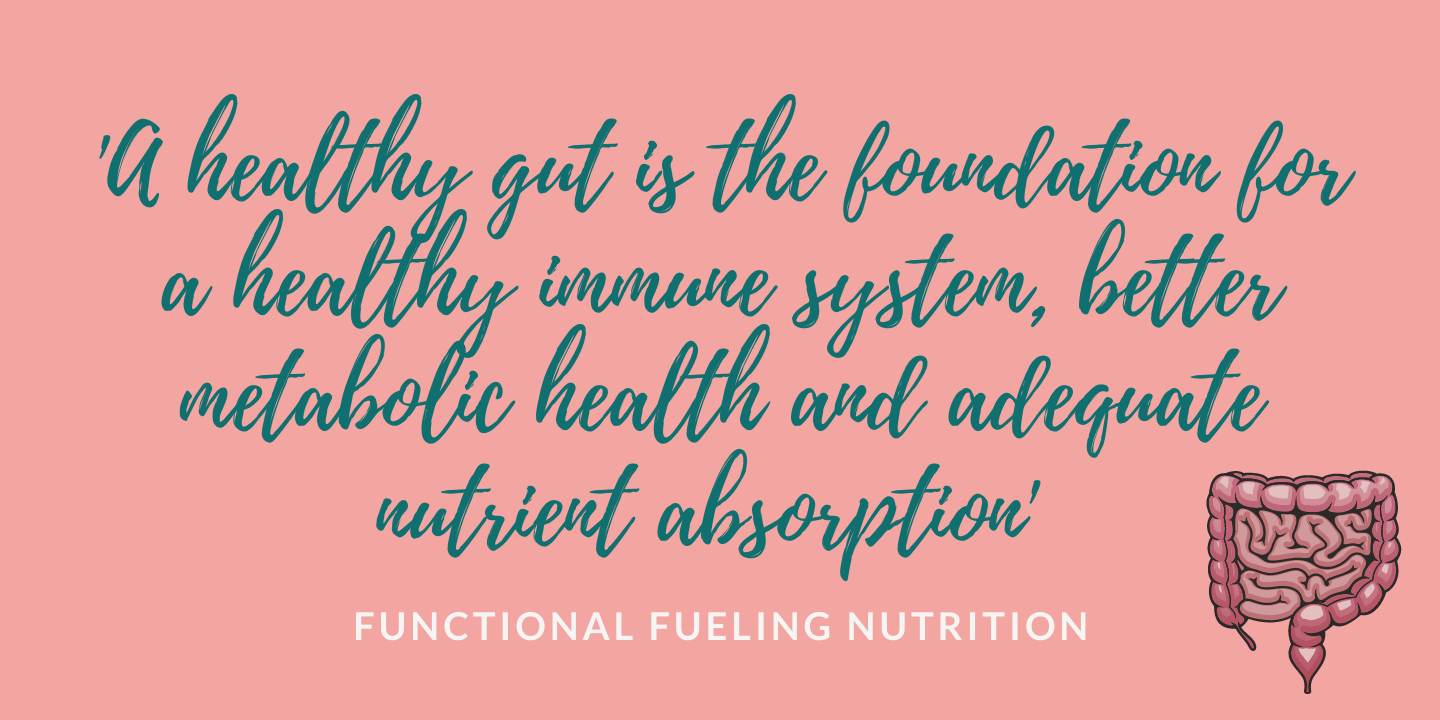Leaky gut: sounds like something you call your plumber into fix, right? It’s a term that you are likely to have heard before but may not fully understand what it means or how it might affect you. However, there’s good evidence that leaky gut, also known as intestinal permeability, affects many women especially those with PCOS. Read on to find out more.
What is a leaky gut?
The small intestine has a huge role in our digestive system as the site where nutrients are absorbed into our bloodstream and lymph system. It’s a complex organ that’s covered in epithelial cells which line up side-by-side, with ‘tight junctions’ between them that serve as a barrier preventing unwanted contents of the intestine from entering into the body.
This is essential, as directly beneath the small intestine’s epithelial cells lies one of the largest concentrations of immature immune tissue in the entire body, known as the GALT (Gut Associated Lymphoid Tissue). If particles such as environmental toxins and microbes pass through the intestine, our immune cells may not develop normally and an immune response may be activated, creating inflammation in the body.
Zonulin is a protein that regulates the tight junctions between the intestinal cells. When it is released, these junctions open and allow the contents of the intestine to enter the bloodstream. The result? Leaky gut. Exposure to gliadin (a component of gluten), causes the small intestine to release zonulin. Different individuals have different abilities to recover from this gliadin exposure and therefore differ in their risk of having a leaky gut. For example, leaky gut may be common among women with PCOS.
How does it affect women with PCOS?
According to a study by the European Journal of Endocrinology, serum zonulin, a biomarker for gut permeability, is increased in PCOS women and correlates with insulin resistance and severity of menstrual disorders (1). Studies have also found women with PCOS to have an increased likelihood of irritable bowel syndrome (IBS); a condition associated with leaky gut (2). Women with PCOS are also predisposed to increased inflammation and an overactive immune system. This can disrupt a variety of different hormonal processes in the body (3). For women with PCOS who are trying to conceive, an overactive immune system and increased amounts of various inflammatory markers are linked to recurrent miscarriage and infertility (4).
Leaky gut is also associated with malabsorption of key nutrients such as vitamin A, magnesium, zinc, vitamin D, and calcium (4). When key nutrients are not properly assimilated, conditions that are common in women with PCOS may be aggravated, such as anxiety, depression and fatigue.

What can we do about it?
Luckily, there are steps you can take that will greatly improve your intestinal health, allow the intestinal barrier to heal and reduce the severity of leaky gut. The first step is to take a GI map test to determine the overall health and environment of your gut. With this test, we can measure for parasitic and viral infections, bacterial overgrowth or dysbiosis, inflammation and zonulin levels.
Once the results of this test are known, the next step is to remove any irritating foods from your diet, implement lifestyle treatments to aid in healing and begin targeted supplementation to change the environment. It’s important to note that following an elimination diet only reduces symptoms and irritants, the lifestyle and supplement measures are necessary to fix and change the environment to ultimately heal your gut. From there, reintroducing digestive enzymes and stomach acid to encourage the proper breakdown of foods that travel through the intestine, eating prebiotics (read blog on prebiotics) and supplementing with probiotics (read blog on probiotics) may then be recommended. Finally, nutrients that heal the intestinal lining and calm inflammation in the gut such as omega-3s from oily fish, glutamine found in bone broth and demulcents like aloe vera may be helpful.
A healthy gut is the foundation for a healthy immune system, better metabolic health and adequate nutrient absorption. Without a healthy gut, the response to other treatments for PCOS may not be as optimal. Therefore, make your intestinal health a priority! Keep in mind that this is best supervised by a licensed practitioner, like a functional registered dietitian, who will tailor your treatment to your body’s specific needs. To find out more about working with us click here.
In Health,
Lizzy Cangro
References
- Zhang D, Zhang L, Yue F, Zheng Y, Russell R. Serum zonulin is elevated in women with polycystic ovary syndrome and correlates with insulin resistance and severity of anovulation. Eur J Endocrinol. 2015 Jan;172(1):29-36. doi: 10.1530/EJE-14-0589. Epub 2014 Oct 21. PMID: 25336505.
- Mathur R, Ko A, Hwang LJ, Low K, Azziz R, Pimentel M. Polycystic ovary syndrome is associated with an increased prevalence of irritable bowel syndrome. Dig Dis Sci. 2010 Apr;55(4):1085-9.
- De Bellis, A., Bizzarro, A., Pivonello, R., Lombardi, G. & Bellastella, A. Prolactin and autoimmunity. Pituitary 8, 25–30 (2005).
- Carp, H. J., Selmi, C. & Shoenfeld, Y. The autoimmune bases of infertility and pregnancy loss. J. Autoimmun. 38, J266–J274 (2012).
- Teixeira TF, Collado MC, Ferreira CL, Bressan J, Peluzio Mdo C. Potential mechanisms for the emerging link between obesity and increased intestinal permeability. Nutr Res. 2012 Sep;32(9):637-47.
Comments +